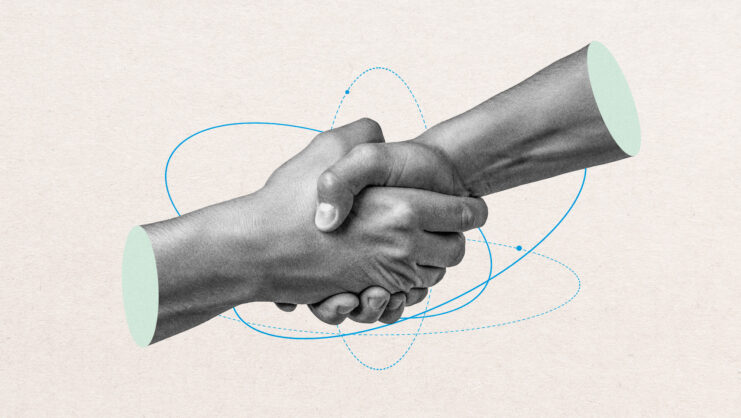How did the adventure begin that took you to Jakarta in 1995?
Ever since joining BBVA I’ve been going to exotic destinations. I spent five years organizing correspondent relationships in Middle Eastern countries, which was a real challenge because the first Gulf War had just ended. I frequently traveled from Lebanon to Oman, and discovered that confronting different cultures was one of the main attractions of my job, but after those years were over I wanted a change. I wanted to take on a bigger challenge.
And then came the bank’s offer and the need to explain it to the family…
Yes. At BBVA they told me there was a unique job that made it necessary to live in Jakarta. I had to advise Spanish companies that were expanding internationally, and I had less to do with financing them. It wasn’t a purely banking job, it wasn’t standardized, and it allowed me to live overseas, in a completely different culture. I loved the idea but my wife, shortly after I asked her about it, came across a book that mentioned Indonesia, and had some prominent images of a Komodo dragon devouring a goat and some semi-nude inhabitants of Papua. We had a child of almost three and another on the way, and she almost threw the book at my head. Luckily I was able to convince her and we went there. I tried to transmit to my family my excitement for what’s different and how exciting it is to adapt to something that’s never easy.
What was it that attracted you so much to Indonesia that you would take on dragons and your wife at the same time?
Well I think what most attracted me was the cultural shock, not knowing what I might find, living out an adventure. Put yourself in my place: twenty years ago there were very few Spaniards willing to pack up and go overseas, and even fewer who dared to go to countries as far away as Indonesia. But I sensed something then that experience has confirmed: it’s worthwhile exposing yourself to the cultural shock –and also doing it with your family– because you learn a great deal and you become more respectful and tolerant. When we came back to Madrid my son saw some kids in his school who were bullying another child because of his race, and he not only could not accept that behavior but couldn’t understand it. He saw nothing either good or bad in other people’s races, and that was wonderful. When you travel, you never face anything that can’t be overcome. Neither there nor here are there differences that we can’t overcome.
One must always avoid that tendency of Westerners to think they are superior.
And yet those differences must have made it very hard to coordinate teams.
That’s true. Both when I worked in Jakarta and Singapore I had to get very involved with my teams. Their members came from different places and had different races and religions, they didn’t always respect each other and they could have mistrusted me because I was a Westerner and just appeared to be passing through. That’s when I learned that it was necessary to be very tolerant of different cultures, that it was very complicated to try and change the prejudices of people –I concentrated especially on demonstrating things with deeds– and that it was necessary to preach by example and reject any offensive or xenophobic comments. One must always avoid that tendency of Westerners to think they are superior.
And one of the challenges was not to leave Indonesia in spite of the violence and the extremely severe economic crisis at the end of the 90s.
That’s right. Like so many other countries in Southeast Asia, Indonesia has a long memory. They remember perfectly who their friend is, who is there for them in good times and bad, and who doesn’t get worked up over traits like taking a long time to reach a decision or how hard they find it to say no to something. During the Asian crisis, Indonesia’s economy suffered considerably and violent street clashes broke out. Most of the foreigners left, over a few days the Spanish embassy had to evacuate us, and my wife and children went back to Spain to spend the summer months. I preferred to stay because I knew that we outsiders were not the target of this violence, and because I wanted to demonstrate to the Indonesians that neither the bank nor I were just there temporarily, that we had a long-term commitment and that if we had been there in good times we would also be there in hard times. As I said, these are countries with a long memory and that’s why there are still people there who remind me of this.
You were in Jakarta until 2002, and then you returned to Madrid, returned to Singapore in 2007 and after another stop in Madrid you were back in Indonesia…
Yes, we came back to Spain for a few years, where I continued to have direct responsibility over these markets until in 2007 I went back to purely banking activities and we moved to Singapore, where BBVA had opened an office a few years earlier. Though it may sound surprising, I like the unexpected so much that I didn’t enjoy the experience very much. Everything there works perfectly! Everything’s too good to be true! Maybe that’s why it was too routine for me. Fortunately in 2013, and after helping design the bank’s new strategy for the whole region, we went back to Jakarta. Although this country has been growing over the past decade at an average five per cent annually and has modernized in many respects, it’s still a very different country from what we’re accustomed to: every day brings a new surprise. Adapting still isn’t easy, but there are plenty of opportunities.
© IE Ideas.











